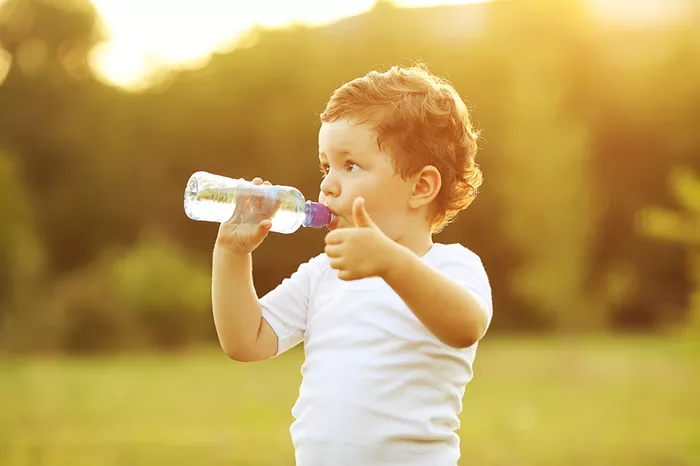In recent years, there has been a growing recognition of mental health issues among children and adolescents. While childhood is often perceived as a time of innocence and carefree joy, the reality is that many young individuals struggle with a variety of mental disorders that can significantly impact their development and well-being. It is essential for parents, educators, and healthcare professionals to be aware of these disorders, recognize their signs and symptoms, and provide appropriate support and intervention. In this article, we will explore some of the most common childhood mental disorders, their symptoms, causes, and treatment options.
1. Attention-Deficit/Hyperactivity Disorder (ADHD)
ADHD is one of the most prevalent childhood mental disorders, affecting approximately 5-7% of children worldwide. It is characterized by persistent patterns of inattention, hyperactivity, and impulsivity that are inappropriate for the child’s developmental level. Symptoms often manifest before the age of 12 and can significantly impair academic performance, social relationships, and overall functioning. While the exact cause of ADHD is not fully understood, genetic factors, brain abnormalities, and environmental influences are believed to play a role. Treatment typically involves a combination of medication, behavioral therapy, and educational support.
2. Autism Spectrum Disorder (ASD)
ASD is a neurodevelopmental disorder that affects social interaction, communication, and behavior. It encompasses a wide range of symptoms and severity levels, hence the term “spectrum.” Common features of ASD include difficulties in social interaction, repetitive behaviors, restricted interests, and sensory sensitivities. While the exact cause of ASD remains unknown, genetic predisposition and environmental factors are thought to contribute. Early intervention, such as behavioral therapy and specialized education programs, can greatly improve outcomes for children with ASD.
3. Anxiety Disorders
Anxiety disorders are among the most prevalent mental health conditions in children and adolescents, affecting approximately 8-10% of youth. These disorders encompass a range of conditions, including generalized anxiety disorder (GAD), social anxiety disorder, panic disorder, and specific phobias. Symptoms may include excessive worry, fear, restlessness, irritability, and physical symptoms such as headaches or stomachaches. Various factors, including genetics, brain chemistry, and environmental stressors, can contribute to the development of anxiety disorders. Treatment typically involves cognitive-behavioral therapy (CBT), medication, and stress management techniques.
4. Depression
Depression is not limited to adults; it can also affect children and adolescents. Childhood depression is characterized by persistent feelings of sadness, hopelessness, irritability, and loss of interest in activities once enjoyed. Other symptoms may include changes in appetite or sleep patterns, fatigue, and difficulty concentrating. Like anxiety disorders, depression can have multiple causes, including genetic predisposition, biochemical imbalances, and environmental stressors such as trauma or family conflict. Treatment often involves a combination of therapy, medication, and support from family and peers.
5. Conduct Disorder
Conduct disorder is a behavioral disorder characterized by repetitive patterns of aggressive, antisocial, and rule-breaking behavior. Children with conduct disorder may exhibit behaviors such as physical aggression, vandalism, theft, deceitfulness, and disregard for rules and authority figures. While the exact cause is not fully understood, a combination of genetic, environmental, and social factors is believed to contribute to its development. Early intervention is crucial in managing conduct disorder, and treatment may involve therapy, family counseling, and social skills training.
6. Obsessive-Compulsive Disorder (OCD)
OCD is a mental health disorder characterized by intrusive, unwanted thoughts (obsessions) and repetitive behaviors or rituals (compulsions) performed in an attempt to alleviate anxiety or distress. While OCD typically develops in late childhood or adolescence, symptoms can emerge in younger children as well. Common obsessions include fears of contamination, harm to oneself or others, or a need for symmetry or order. Compulsions may involve repetitive actions such as handwashing, counting, or checking. Genetics, brain structure, and environmental factors are thought to contribute to the development of OCD. Treatment often involves a combination of therapy, medication, and exposure and response prevention (ERP) techniques.
7. Post-Traumatic Stress Disorder (PTSD)
PTSD can occur in children who have experienced or witnessed a traumatic event, such as abuse, violence, natural disaster, or accidents. Symptoms may include intrusive memories or flashbacks of the traumatic event, avoidance of reminders, negative changes in mood or cognition, and heightened arousal or reactivity. PTSD can significantly impair a child’s functioning and quality of life if left untreated. Early intervention with trauma-focused therapy, such as cognitive processing therapy (CPT) or eye movement desensitization and reprocessing (EMDR), can help alleviate symptoms and prevent long-term consequences.
Conclusion
Childhood mental disorders are complex conditions that require careful assessment and intervention. By increasing awareness and understanding of these disorders, we can better support the mental health needs of children and adolescents. Early identification, appropriate treatment, and ongoing support are essential in promoting positive outcomes and ensuring that young individuals reach their full potential. Through collaboration among parents, educators, healthcare professionals, and community organizations, we can create a supportive environment where children can thrive emotionally, socially, and academically.
[inline_related_posts title=”You Might Be Interested In” title_align=”left” style=”list” number=”6″ align=”none” ids=”9232,9229,9226″ by=”categories” orderby=”rand” order=”DESC” hide_thumb=”no” thumb_right=”no” views=”no” date=”yes” grid_columns=”2″ post_type=”” tax=””]































